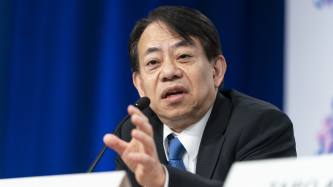While 2007 was a tremendous record-breaking year for the Malaysian stock exchange, the market’s performance at the start of the new year certainly set the scene for much more challenging months ahead. The vagaries of the global economic scene stemming from the rising crude oil prices, continued US subprime issues and the credit crunch has definitely spread to the Asian markets, including Malaysia. Having said that, our underlying fundamentals remain strong and the country’s economy is expected to maintain its resiliency.
Foreign investor participation remains good, averaging about 40% of trades, on expectations of solid economic growth and positive corporate earnings. The Malaysian capital market still holds its appeal in terms of depth and breadth, and more importantly offers good gains to investors as a whole. Now is the time for investors to bargain-hunt stocks with good value before the market regains momentum and valuations rebound.
Malaysia is staying ahead of the growth game by attracting investors with its world-class infrastructure, progressive government economic initiatives and, more importantly, its abundant investment opportunities. The government is making strides in sustaining Malaysia’s cost-competitive environment and pro-business policies as part of its efforts to promote investments in value-added and capital-intensive industries. These initiatives, coupled with the strong economic fundamentals, as well as our stable and comprehensive regulatory framework, have made Malaysia a safe investment haven.
As a frontline regulator, Bursa Malaysia has the responsibility to ensure an orderly and fair market, and to develop appeal as a preferred listing and investment destination. The Malaysian capital market boasts a strong selection of large- and small-to-mid-caps stocks, in addition to a good stable of high growth and technology companies. In that respect, we provide some of Asia’s best investment opportunities because our market is not only established but also diverse, with investment choices in almost 1000 listed companies. Our other main asset is our sizeable Islamic capital market, which offers complete sharia-compliant infrastructure and products. Some 86% of the companies listed on Bursa Malaysia are sharia-compliant and they account for 63% of our market capitalisation. The country also has a very well-developed sukuk or Islamic bonds market in which we are the world’s largest sukuk issuance centre.
Lingering issues
A long-standing issue facing the Malaysian capital market has been its lack of liquidity. We recognise this as a major area of concern and many initiatives are being put in place to address this issue in a focused manner. For instance, one move that we view as enhancing liquidity is the gradual sell-down of equity in listed companies which represent strategic holdings by government-linked investment companies (GLICs). These strategic holdings have no doubt contributed to the low level of free-floated shares and impacted on liquidity of the stocks. Early this year, we introduced Asia’s first sharia exchange-traded funds (ETFs) that involved GLICs trimming their shareholdings in companies via selling out a portion of their portfolios in exchange for units in ETFs to be issued. It is anticipated that the reduced strategic shareholdings by GLICs will improve our market’s free-float standing, thereby increasing liquidity.
I believe that our market has become more open compared to many of our regional counterparts. Our FTSE-Bursa Malaysia indices are good examples of achieving international compatibility and acceptability by bringing global methodology to our market. The indices measure our market’s performance by using developed market benchmarks on free-float, liquidity and investability classifications.
Enhancing transparency
Our rules and listing requirements are internationally benchmarked, resulting in a regulatory framework that has strong investor-protection features. For instance, the revised Malaysian Code of Corporate Governance (modified in 2007) which superseded the earlier one issued in 2000, is primarily aimed at strengthening the roles and responsibilities of the boards of directors and audit committees, to enable effective discharge of their duties.
Malaysia’s strides in improving our corporate governance standards are noted by global parties. Specifically, The World Bank, in its Doing Business 2007 report, ranked Malaysia fourth in the world for investor protection. In a similar report in 2006, we were in the top three in regulating the liability of directors and requiring the most disclosure of related third-party transactions. In many areas, Malaysia is ahead of its Asian neighbours in achieving high standards of governance practices.
In essence, good governance and effective regulations contribute to the appeal of a capital market for investment. Suffice to say that most global investors are attracted to markets that are not only dynamic but also maintain high levels of investor confidence in the integrity of the market.
Listings opportunities
Cross-border listings signal further financial sector liberalisation and this gives companies more opportunities to access new sources of funding, profiling and investors. Together with the Securities Commission, we have recently relaxed the rules and allowed foreign-owned companies with operations abroad to be listed on our bourse. In addition, main board companies are now able to seek secondary listings abroad. We hope that with cross-listing opportunities, our capital market will not only become more efficient but also propel the integration of the Malaysian market with global markets.
Companies should view our market as a preferred listing avenue as not only is it cost-effective in terms of offering the lowest listing fee in the region, it also attracts global fund managers and investors due to attractive valuations that are comparable to regional markets.
Cross-listing also demonstrates our strong belief in the value of developing strategic alliances with industry partners globally. We are particularly interested in working closely in neighbouring exchanges to participate in the long-term growth of Asia’s emerging equity markets.
New products
Bursa Malaysia is already demonstrating its capacity to offer new products and services with broad, international appeal, such as sharia-compliant ETFs and real estate investment trust.
An area that Bursa Malaysia can be proud of is our achievement and strong drive in the derivatives market. The number of derivatives contracts traded on the Exchange grew from 4.2 million to 6.2 million in 2007, mainly because of strong demand for crude palm oil futures (FCPO) and the Kuala Lumpur index futures. Our star derivatives product, FCPO, is acknowledged as a global contract and is the preferred benchmark for the pricing of palm oil products worldwide. Building on the success of our FCPO, we are targeting a 50% rise in the number of derivatives contracts this year. We are banking on our derivatives market performance to help cushion the impact of volatility in the equities market.
We are on a continuous journey to internationalise our futures market and are looking to offer new derivatives and structured products that are relevant to the demands of the global marketplace, and such products will elevate our international standing in the futures market among global investors. This year, Bursa Malaysia is looking at launching a US dollar crude palm oil futures contract which will complement the highly successful ringgit-denominated crude palm oil futures contract.
Leveraging on the popularity of FCPO which traded 2.8 million contracts in 2007, we are optimistic that it will result in more contracts being traded and increase the number of foreign players participating in the palm oil derivatives market. This move is also aimed at enhancing growth in foreign currency products.
Infrastructure enhancements
We are undertaking a lot of infrastructure upgrades in the exchange. The main project is to upgrade our trading platforms for both the derivatives and equities market, primarily aimed at supporting future business growth and a more active market.
Investors are attracted to investment opportunities offered by markets that provide speed, easy access and flexibility. Bursa Malaysia is investing in a dynamic trading system that will create a more efficient trading environment. We have also successfully put in place an electronic bond trading platform that allows dealers to easily match bids with offers, negotiate deals and access historical data through a computerised network.
In addition, we have recently rolled out direct market access (DMA) for the derivatives market, a move which is reflective of our exchange’s intention to achieve a more open and efficient marketplace. DMA is expected to give investors more control over their trade executions and access to multiple markets and asset classes.
We realise that we need to have an efficient and a reliable trading system to compete with more developed markets. With the new system, we can introduce some of the features that investors are accustomed to in more developed market as well as increase the efficiency of our trading.
The Malaysian capital market is well positioned to meet the challenges and to capitalise on the opportunities arising from the changing dynamics of the investment environment.
Sustaining market resiliency may be a lofty goal but Bursa Malaysia believes that our market’s competitiveness and vibrancy still holds appeal to global investors due to its fundamentally strong economy.











